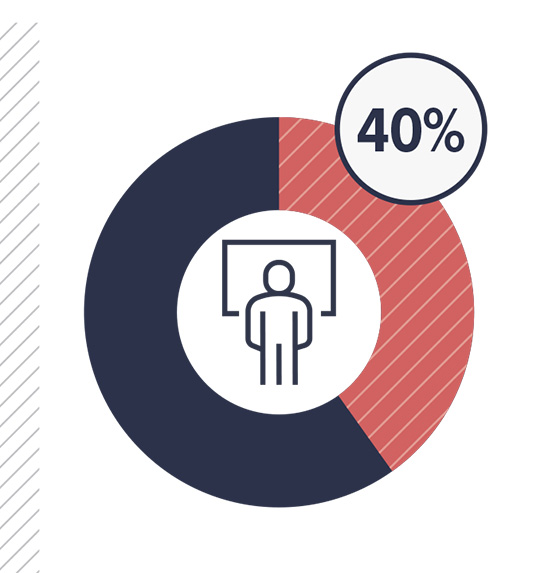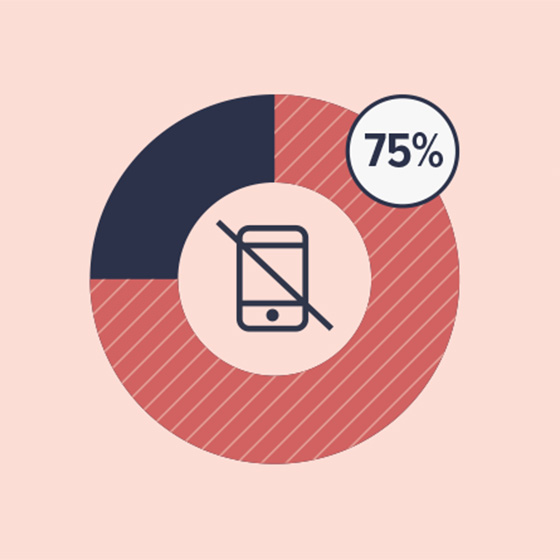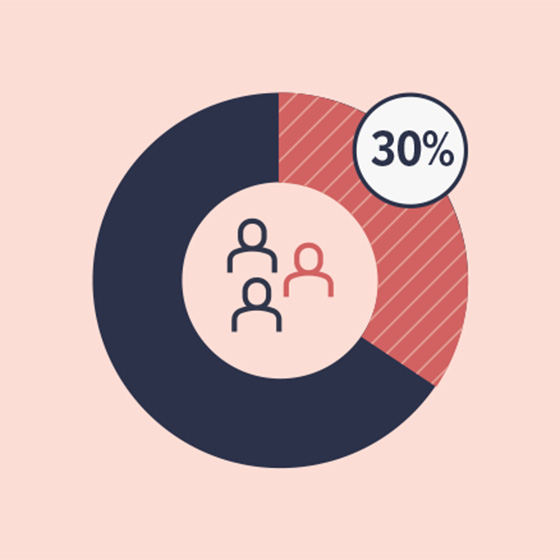Teachers share their views on artificial intelligence
In a world where emerging technologies continue to (re)shape our daily lives, Alberta teachers are calling for careful consideration of the employment of artificial intelligence (AI) in their classrooms and schools.
A recent, and highly representative, Association research survey from December 2023 of 2,148 members (1,934 teachers and 214 school leaders) has shed light on an intriguing development: one in two Alberta teachers have explored the use of AI tools in their professional or personal lives within the past six months.
AI can be used to help with the administrative tasks but we still need individual research, creativity and thought processes.
— Respondent, ATA pulse survey of teachers and school leaders

The survey paints a nuanced picture: one-third of respondents believe AI advancements will enhance teaching and learning, another third view this future with skepticism and the final third remain uncertain. It's clear that the debate is just beginning, and Alberta's teaching profession is eager to engage in meaningful conversations about the role of AI in their classrooms.
Another common thread that emerges from this ATA research study is teachers' call for increased professional involvement in AI policy and practice in K–12 education. It is a plea for a deeper understanding of this force and shows a dire need for explicit policy guidance on its use as an emerging technology in education systems. These Alberta teachers, who stand on the front lines of our future, are keenly aware of the potential that AI has to reshape our profession and are expressing a genuine desire to navigate this transformation thoughtfully. However, a substantial six in 10 Alberta teachers do not believe their schools are adequately prepared to harness AI technologies for the benefit of both students and teachers.
Interestingly, there is a positive correlation between the frequency of using AI tools and a positive outlook on AI's role in education: those who have integrated AI into their teaching methods are more likely to see the benefits it can bring to Alberta's K–12 education system. However, despite this positivity, concerns are still widespread, with 80 to 90 per cent of respondents worrying about AI's potential negative effects.
Among these concerns is the fear that AI could erode trust in the teaching profession by leaving important moral decisions to machines — a moral passivity. Teachers are also worried about the possibility of cognitive atrophy in students, such as reduced memory and critical thinking skills, which may fundamentally alter their abilities to become active and engaged citizens. Additionally, there's a growing apprehension about the impact of AI on equity, with 59 per cent of respondents fearing that uneven access to AI tools could exacerbate educational disparities among students.
Despite these concerns, the teaching profession is not shying away from integrating AI into public education. Teachers are using AI as a tool to enhance student learning, ease administrative burdens and foster a critical understanding of AI among their students. By incorporating AI, teachers are creating more interactive and engaged learning experiences while also preparing students for a future where AI is an integral part of everyday life.
Surprisingly, 40 per cent of teachers are not worried about AI replacing their jobs. This sentiment likely arises from their deep understanding of the complex, highly relational aspects of teaching and learning that cannot be easily replicated by machines.
As Alberta's teachers and school leaders continue to grapple with ethical considerations, pedagogical innovation, curriculum development and questions surrounding AI access and equity, it's clear that their dedication to providing the best possible education for our children and youth remains unwavering. The future of education in Alberta is being shaped by the dynamic synergy between human teachers and artificial intelligence, and the journey has only just begun. It will be our job to ensure that every child continues to have a teacher to help them flourish into the future and that the highly relational spaces of teaching and learning remain predominantly human.
Ban smartphones in schools—UNESCO
The United Nations Educational, Scientific and Cultural Organization (UNESCO) has called for a global ban on smartphones in schools. Not only do the digital devices disrupt teaching and learning, but they can also negatively affect academic performance, negatively impacts physical and mental well-being and make students susceptible to online risks, UNESCO states in its 2023 global education monitoring report.

Source: ATA Pulse Survey, December 2023

Source: UNESCO Global Education Monitoring Report, 2023

Source: Organisation for Economic Co-operation and Development, Report on 2022 Programme for International Student Assessment
Read more
The full survey is published in Reporting on Class Size and Complexity, Aggression, and Artificial Intelligence (AI) in Alberta’s K–12 Schools
Read the report
Associate Coordinator, Research, ATA